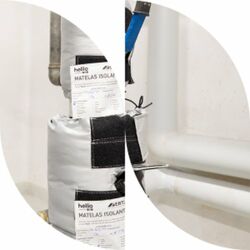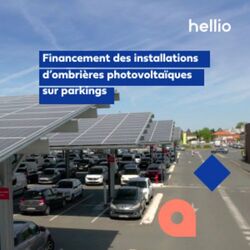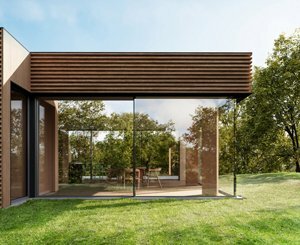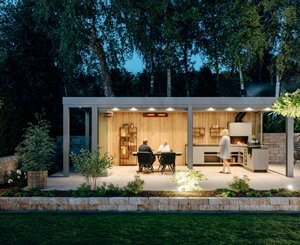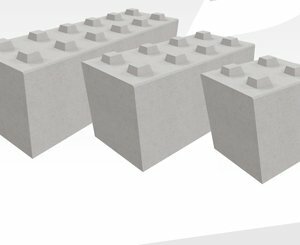But with the Climate and Resilience Law, you no longer have a choice! Condominiums will have to take the lead in energy renovation, under penalty of facing sanctions, such as the future ban on the rental of energy strainers from 2025. This law, promulgated on August 22, 2021, particularly targets rental management and condominiums. Two interconnected universes because 60% of housing in large cities are owned by investors and are therefore occupied by tenants. Faced with the climate emergency, comprehensive and efficient energy renovation is considered the only way to achieve the objective of carbon neutrality in 2050.
Aware that these obligations will have a strong impact on condominiums, Hellio, a benchmark player in energy management, wanted to probe their perception of energy renovation work and assess their knowledge of aid. This survey, carried out online between August 15 and September 30, 2021 to which 300 co-owners, members and union council managers across France responded, shows that the task is immense!
To comment on the results of this study, Hellio brought together, around Henry Buzy-Cazaux, founding president of IMSI (Institute for the management of real estate services), experts from the real estate services sector, within the framework of a table round on October 20, 2021: Danielle Dubrac, president of UNIS, Estelle Baron, director of Soliha projects, José de Juan Mateo, deputy director Procivis Immobilier - Réseau immo de France and Tanguy Dupont, director of the collective housing division of Hellio.
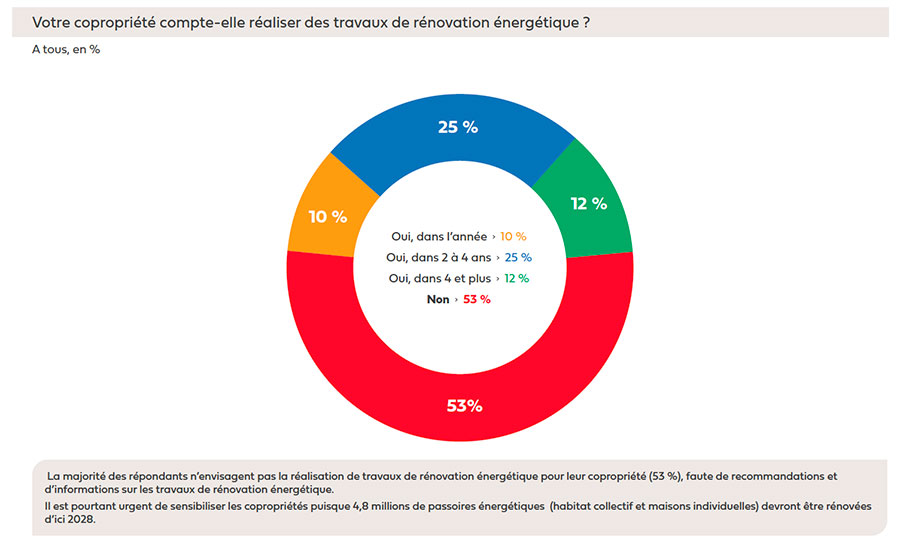
The energy renovation of condominiums: a major challenge
A regulatory issue
While many general assemblies could not be held or kept at a distance with all the inherent brakes, due to the health context, the condominiums nevertheless have the heavy task of embarking on the path of energy renovation and must experiment with a number of reforms voted in the framework of the Climate and Resilience Law:
- A DPE that has become enforceable and has a double threshold (CO2 emissions and energy efficiency) since July 1, 2021,
- A mandatory energy audit for housing G, F, E and D from 2022 (January 1, 2022 for class F or G housing; January 1, 2025 for class E housing; January 1, 2034 for class D housing ),
- A schedule on the rental ban on the most energy-intensive homes (G in 2025, F in 2028, E in 2035),
- A new calculation of the works fund,
- The Mandatory Multiannual Work Plan.
Concretely, there are 23 million dwellings classified from G to D (collective housing and individual houses), which must be renovated because the legislator did not limit itself to the eradication of heat sieves (4,8 million).
A financial stake
In addition to the regulatory obligation, quarterly condominium fees weigh heavily on household budgets: € 749 on average in 2020[1].
According to the results of the Hellio survey, nearly 1 in 2 respondents (49%) believe that the weight of energy is greater than 20% of loads. A proportion which should increase further in the current context of rising energy prices if no work is undertaken in the condominiums.
Obstacles to overcome
Lack of knowledge of energy renovation
The first lesson of the survey carried out by Hellio is the lack of knowledge of condominiums on several subjects closely linked to energy renovation.
50% of respondents do not know the energy label of their condominium and only 15% believe they have taken it into account when purchasing. However, energy is increasingly becoming a component to be taken into account. This consideration should logically evolve with the future ban on the rental of energy strainers from 2025: the green value will have an influence on the sale price of a property and on its rental. But faced with this future ban, the risk is that some landlord co-owners instead plan to sell, like Brigitte:
“I made the decision to put my apartment up for sale because there are too many constraints without any information around. I like things to be clear, I am informed, I make a decision. Today I have no information, it's complicated, I'm selling! ".
To the question "Do you know about comprehensive renovation in co-ownership?" », Almost 3/4 of the respondents answered in the negative.
The same goes for aid for overall renovation: 70% do not know about it. These results are hardly surprising since the overall renovation has recently been a focus of the government, MaPrimeRénov 'co-ownership having been launched less than a year ago.
The brakes to vote for energy renovation work
As a direct consequence of ignorance, convincing co-owners to invest in ambitious work is not an easy task! Co-owners too infrequently make the decision to initiate energy renovation work except for financial reasons: lower charges for 78% of respondents and the value of the property for 69%. These results confirm that real estate is the number one investment item for the French.
Solutions to overcome obstacles
Support for trustees
At the heart of the decision-making process, the trustees have a key role to play. However, 82% of respondents state that they have not had any recommendations on energy renovation work for their condominium from their professional property manager.
“We need partners who ultimately manage for us all the part upstream of the vote on the works. Once everything is managed with the amount of work, any help we may have, the rest to be paid for, it allows us to be able to present at AG and there in general, it is well built, it goes! But without help and without good partners, we can't do it! ", testifies Emmanuelle Thomas, condominium manager at Cabinet Thomas.
Although the trustee is there to allow the co-owners to have a longer vision (they own their property for 7 years on average), the need for support is paramount to provide them with recommendations and mobilize the available aid. Conditions sine qua non to convince the co-owners to take action.
An observation shared by Danielle Dubrac, president of UNIS, who confirms that the trustees must be accompanied by professionals who master the aid in order to have the right decision taken at the right time during general meetings. All the more so since the year which has just passed has been a blank year, with no major work posts voted on.
Global renovation
The political priority given to the energy renovation of condominiums comes up against an insufficiently stimulated demand for works. 53% of respondents do not plan to carry out energy renovation work for their condominium and 50% do not intend to carry out the overall renovation although this is one of the solutions facing the obligation to renovate energy strainers from 2025. In addition, thanks to the global renovation, the condominiums could reduce the amount of charges related to energy by a minimum of 15%[2].
For those who project it, it is only considered in the long term for 19% (4 years and more) of the respondents. However, there is urgency because the decision-making times of the condominiums are long. According to Hellio, the average time to complete a comprehensive renovation is 3 years.
The study carried out by Hellio does, however, show encouraging prospects. When the co-owners are informed, they identify thermal insulation from the outside as the most efficient workstation to achieve the most energy savings (48%).
"Supporting an insulation and renovation project, for example, with a comprehensive reflection on other work to be considered would allow co-owners to benefit from greater aid thanks to the overall renovation, while achieving greater savings in energy ", underlines Tanguy Dupont, director of Hellio solutions for Collective Housing.
Global renovation comes in 4th position in the top 10 of energy renovation works cited. A positive signal testifying to a beginning of awareness.
The concept of global renovation is accepted by all those involved in the debate even if some do not consider it as a solution of massification.
For Estelle Baron, director of Soliha projects, this ambitious approach leaves too many residences aside (especially small ones) and must go through a solid audit which allows to see how far it is possible to go with regard to the typology of co-owners. . A phased renovation may be more appropriate in some condominiums, especially since we must not forget the other maintenance work items to be carried out, in particular in fragile and troubled condominiums.
For José de Juan Mateo, Deputy Director of Procivis Immobilier, Réseau Immo de France, the step is too high! He doubts the ability of most residences to achieve the minimum 35% energy savings required to benefit from MaPrimeRénov 'condominiums. This is why he is campaigning for a lowering of the threshold to 20%. We will remember the sentence of José de Juan Mateo who worked on the subject with Procivis Lab ': “The best is the enemy of the good! ".
Promoting the emergence of financing instruments for global renovation
More economical in the end, a comprehensive and efficient renovation is also more difficult to vote because the decision is taken on the basis of an overall cost.
The Sichel report estimated the cost of renovation per dwelling on average at € 15 in collective housing, an amount that was underestimated according to stakeholders. The fact remains that 000% of respondents to the Hellio survey say they are ready to allocate € 75 to energy renovation work, i.e. the average amount of the remainder to be paid by co-owner of a global renovation after deduction of aid. (MaPrimeRénov ', CEE), according to Hellio.
“MaPrimeRénov condominiums makes it possible to finance 25% of the cost of the work, provided that the minimum 35% of energy savings is reached. In addition, there are Energy Savings Certificates, a private aid financed by energy suppliers, to the tune of 10 to 20% of the amount of the work ”, details Tanguy Dupont.
But the majority of respondents do not know about aid for global renovation, proof of a need for simplification to make them more accessible and to make them a trigger.
There is also the question of financing the remainder to be borne by the poorest and oldest households who encounter the problem of access to credit. The banks show little appetite for the financing of energy renovation, considered unprofitable in view of the technical constraints imposed, even if the apprehension of these devices by the banks is developing positively, with in particular the introduction of the loan advance renovation from January 1, 2022.
Hellio's proposal: to experiment with the support model offered by France Stratégie, an assembly operator approved by the State which would offer a third-party financing solution
These “assembly operators”, private companies or mixed economy companies selected by the public authorities, would establish the energy performance diagnosis of the housing and the anticipated profitability of the operation. They would advance the financing of the work and carry it out then repay themselves monthly on the lower energy bill, capturing 3/4 of the savings. Labeled and backed by a public guarantee, they will have to gain the confidence of households who would have no costs to advance.
The financing scheme is unprecedented: to channel the financing to the operator, who reimburses himself and generates the margin of his service contract from the energy savings achieved. The operator therefore guarantees these savings, via an Energy Performance Contract (EPC).
The source of funding could come from specialized funds, green bonds, for example. The system would also be secured by a public guarantee. Note: the operator financing himself on energy savings would have the right incentive to support the household, train them and help them achieve savings that do not degrade their comfort.
In conclusion, the speakers agree that this solution is interesting but that it can only be one tool among others because it does not respond to all types of condominiums (small sizes, old centers, condominiums where the heating is not collective, etc.).
“I find that we have put forward problems but also a lot of solutions based on what the owners and professionals in the field think. We have not neglected reality, it has served as a springboard for this debate ”, concludes Henry Buzy-Cazaux.
[1]https://www.pap.fr/actualites/copropriete-les-charges-reculent-de-2-en-2019-2020/a22439
[2] Calculation based on energy expenditure of € 400 per year.
 Artisanté Barometer: the impact of economic uncertainty and administrative burden on the health of heads of artisanal construction companies is confirmed
Artisanté Barometer: the impact of economic uncertainty and administrative burden on the health of heads of artisanal construction companies is confirmed
 The Sustainable Real Estate Observatory and the Biodiversity Impulsion Group program decipher LCA Biodiversity in Building practice
The Sustainable Real Estate Observatory and the Biodiversity Impulsion Group program decipher LCA Biodiversity in Building practice
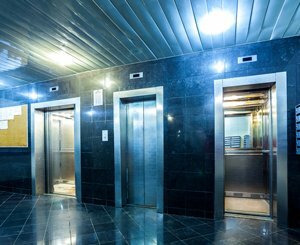 Accessibility: elevators considered too old and too few in number as the 2024 Olympic and Paralympic Games approach
Accessibility: elevators considered too old and too few in number as the 2024 Olympic and Paralympic Games approach
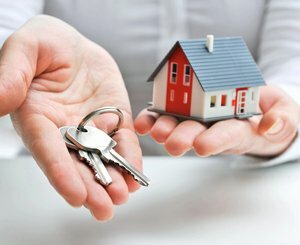 Buying a detached house or real estate, a dream that is less and less accessible for the French
Buying a detached house or real estate, a dream that is less and less accessible for the French
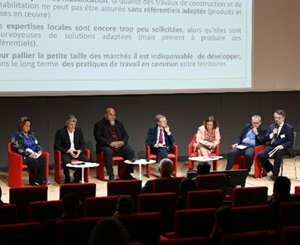 Sustainable Construction Conference in Overseas Territories: Summary of the results of the concluding workshops
Sustainable Construction Conference in Overseas Territories: Summary of the results of the concluding workshops
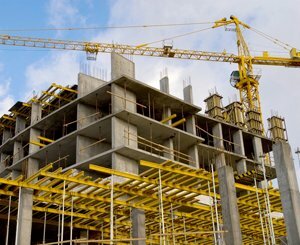 The number of building permits continues to fall over 12 months confirming the deep construction crisis
The number of building permits continues to fall over 12 months confirming the deep construction crisis
 Real estate agent morale barometer: towards the end of the tunnel?
Real estate agent morale barometer: towards the end of the tunnel?
 Builders and real estate companies under high tension
Builders and real estate companies under high tension
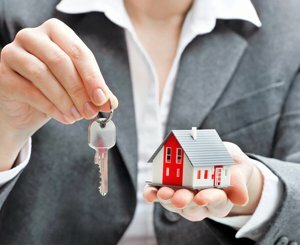 Is the investment in stone going against the wall?
Is the investment in stone going against the wall?
 The mortgage rate fell in February, for the first time in 1 years
The mortgage rate fell in February, for the first time in 1 years
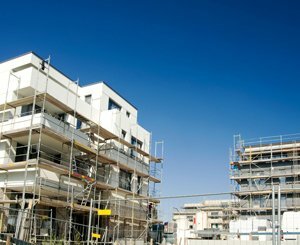 Building and real estate: a sector plagued by crises but whose ecological transition is underway
Building and real estate: a sector plagued by crises but whose ecological transition is underway
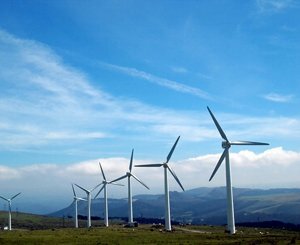 As the world burns more fossil fuels than ever, persistent obstacles hamper the race for renewable energy
As the world burns more fossil fuels than ever, persistent obstacles hamper the race for renewable energy



